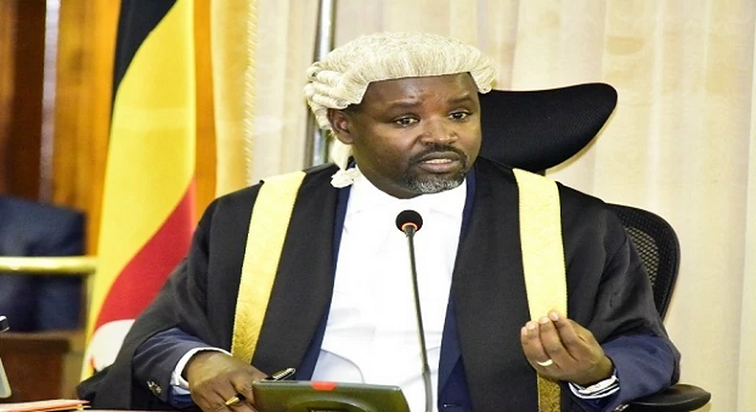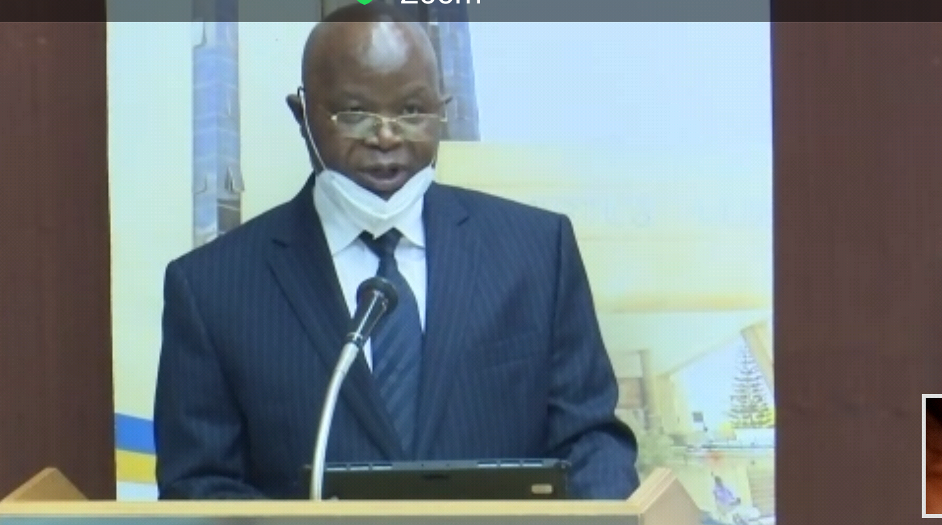Deputy Speaker Thomas Tayebwa
The Deputy Speaker of Uganda’s Parliament, Thomas Tayebwa has backed the move by Bank of Uganda after the Central Bank reportedly rejected the approval of a non-Ugandan as the Chief Executive Officer of Stanbic Bank Uganda, saying Uganda should join nations like Kenya and South Africa that ring fence such lucrative positions for their own nationals.
It should be noted that Anne Juuko’s tour of duty as the Stanbic Bank Uganda Chief Executive came to an end on 31st March 2024 and subsequent transition to another leadership role as Global Markets Regional Head for East Africa, effective April, 2024.
Reports indicate that Stanbic had picked a non-Ugandan to replace Juuko, but BoU declined to approve the proposed candidate.
Consequently, Stanbic Bank Uganda last week announced the appointment of Samuel F Mwogeza as its Interim Chief Executive
Otuke County MP, Paul Omara, raised the matter on the floor of Parliament, asking Parliament to back a directive by Bank of Uganda requiring Stanbic Bank Uganda to hire a Ugandan national as the next Chief Executive Officer, saying Uganda has people with qualifications to take up the job, other than having such a lucrative to be given to a foreigner.
“Normally, foreign nationals are recruited as long as there are no nationals in that particular country. Standard Bank and Stanbic Bank might not have explored opportunities of Ugandans capable of running that bank, but I believe they are there. Therefore, my request is for this House to associate ourselves with the position of the Central Bank that the Standard Bank Group and Stanbic Uganda’s board should explore opportunities for Uganda human resources to run Stanbic Bank,” said Omara.
He informed Parliament that the nominee to succeed Anne Juuko has been rejected on account of him being outside the country.
“I have been in the banking industry for the last 26years, what I know is that Uganda has made tremendous progress in human capital development and the banking sector hasn’t been an exception. We have had many Managing Directors who are Ugandans, I think where we have reached on matters of financial stability, because this Bank plays a critical role in the financial sector on a daily basis,” he said.
In response, Tayebwa said: “Stanbic Bank was in the hands of a Ugandan, Patrick Mweheire, it performed very well. They brought in a female (Anne Juuko), a young Ugandan lady, it also performed exceedingly very well. Now the question of bringing in a non-Ugandan to a Bank which we entrusted our biggest assets and most of our money, you would ask yourself why? If Ugandans were performing badly, you would have an issue, because I understand that each and every bank, submits a succession plan to the Central Bank regularly. There is no foreigner who can go to Kenya and become a Managing Director of the Bank. In South Africa where Stanbic is coming from, there is no foreigner who is the Managing Director of any Bank, why Uganda?”
He added: “I want to support the Central Bank for rejecting the non-Ugandan who was nominated because when the Bank performs well, now they want to take it back to themselves. Otherwise, let them give us a swap, let a Ugandan be the Managing Director in another country then they come here. Some of us support the Central Bank, it was right to reject the foreigner to come and be.”






I surely stand behind you Rt. Hon. Deputy speaker TT for that stand. In fact I would suggest that that policy should be brought back to the floor of the house to be better discussed and be given the attention that it needs.
The statement emphasizes the need for Uganda to prioritize its own human resources, particularly within the banking sector. It suggests that not only should Ugandans be considered for key positions in Stanbic Bank Uganda, but this principle should extend to all banks operating within the country. For instance, it advocates for setting quotas such as 90% of the labor force including the top most in the company being Ugandan across various sectors, including construction, hotels, private health facilities, banking, production and others.
This approach aims to address unemployment concerns and reduce reliance on foreign expertise, while also highlighting the broader economic impact of such policies in retaining
Ugandan talent within the country. 🇺🇬 uganda should not keep on employing foreigners while Ugandans are becoming slaves in the middle East and other parts of the world. Remember there Ugandans or only doing lowest earning jobs.